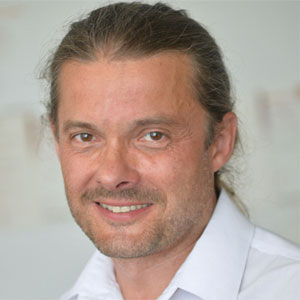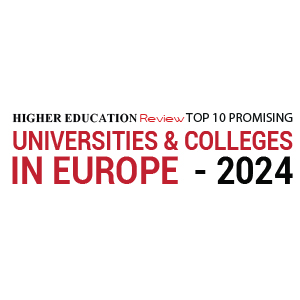Eotvos Lorand University: Innovating Informatics & Nurturing Leaders Through Industry Collaboration
By Prof. Tamas Kozsik, Dean
Higher education in Europe is highly competitive, driven by key success factors such as scientific connectivity, involvement in innovation processes, and resource utilization from industrial collaborations. This dynamic environment also creates attractive settings for students and industry partners. European higher education offers numerous benefits, including access to high-quality education, European-level quality assurance, coordinated and transparent training, credit recognition, and extensive exchange programs. Additional advantages include dual degree opportunities, a friendly and safe environment, cultural diversity, and support for developing responsible, environmentally conscious, human-centered technologies, aligning with European strategies. Graduates also enjoy excellent earning potentials with European degrees.
Eotvos Lorand University (ELTE), Faculty of Informatics, exemplifies the integration of higher education with industry and innovation. The Faculty has a cooperation network, embracing open innovation and open-source code developments within its knowledge communities. Multidisciplinary research at ELTE Faculty of Informatics fosters collaboration between lecturers, researchers, students, and industry professionals to tackle scientifically and economically relevant problems.
ELTE Faculty of Informatics has successfully adopted ‘learning outcomes’ approach in university education, enhancing digital and entrepreneurial skills, and responding promptly to labor market needs. The Faculty strengthens cooperation with social, and economic actors, as well as with other higher education institutions, and promotes internationalization, ensuring mobility windows and credit recognition. Aligning its training with future technological megatrends, ELTE aims to maintain its regional and Central European role, and to become a higher education center with increasing visibility not only in Europe, but also in Asia.
Efforts to internationalize include attracting talented students from all over the world, maintaining a competitive teaching staff, and expanding academic relations. ELTE's achievements are supported by its Erasmus and CEEPUS mobility networks, full membership in the EIT Digital (a Knowledge and Innovation Community of the European Institute of Innovation and Technology), and extensive academic and industrial partnerships. ELTE Faculty of Informatics is a founding member of Informatics Europe and an active participant in various working groups. ELTE’s computer science education ranks among the top 400 globally by QS, highlighting its excellence in the field.
Leading Innovation & Education in Computer Science
ELTE Faculty of Informatics offers a broad range of programs in classical computer science, providing education from BSc through MSc to PhD levels. The most popular major, Computer Science, is available at all levels, and it also includes a Preliminary Year program for students needing additional preparation in Mathematics, Informatics, and English before beginning their BSc courses.
At the Szombathely campus, students can pursue BSc, MSc, and PhD degrees in Mechanical Engineering. The university also offers dual (industry-university joint) training in mechanical engineering for international students.
ELTE offers a wide range of master’s programs, a significant part of which are integrated into EIT Digital's European double degree program, in collaboration with leading European universities. Master’s programs at ELTE include Software Technology, Artificial Intelligence, Autonomous Systems, Data Science, Geoinformatics, Intelligent Field Robotics, Cyber Security, Fintech and Mechanical Engineering.
Business development skills are promoted at all levels of training. An innovative business development course is compulsory in the first year of the bachelor's degree. At the master's level, research and development are credit-bearing activities with the opportunity to work in collaboration with industrial partners. The EIT Digital program offers a 30-credit Innovation and Entrepreneurship module available to EIT Digital students.
The PhD school offers diverse programs, including Software and Computer Science, Data Science, Networks and Information Systems, Scientific Computing and Models, Informatics Teaching Methodology, Geospatial Information and Spatial Data, and IT Solutions in Engineering Sciences. PhD students are active members of teaching-research communities and participate in research projects. The Industrial Doctorate program, operational since 2012, offers a 4-year EIT Digital Industrial PhD course in technology and innovation management, with company supervision, a jointly funded scholarship, and industrial work experience.
ELTE also offers an attractive career model for university teachers, including opportunities for further training. The programs and staff are accredited by the Hungarian Accreditation Committee of ENQA, ensuring they meet the highest European standards for teaching quality. Esteemed guest lecturers are also invited regularly through various exchange programs.
Advanced Facilities & Global Opportunities
The ELTE Faculty of Informatics operates from two campuses: one in the bustling capital city of Budapest and the other in the tranquil town of Szombathely, near the Austrian border and close to Vienna. Both campuses offer computer science courses, while Szombathely also provides a mechanical engineering program.
In Budapest, the faculty boasts 25 modern computer laboratories with up-to-date equipment and hybrid technology classrooms accommodating up to 350 students. The lecture halls and regular classrooms can serve up to 3500 students. Students benefit from a variety of electronic learning support systems, with materials available through Canvas/Moodle and MS Teams.
The ELTE Dormitory Centre offers quality and affordable accommodation for international students in Budapest and Szombathely. The dormitories are well-regarded for their vibrant community life and have been extensively renovated. The faculty's Housing Service assists students in finding suitable private accommodations, with options listed in an easily browsed Housing Database.
The faculty's programs are increasingly popular among international students, with over 1000 enrolled in computer science, many supported by the Stipendium Hungaricum program. This program covers tuition, provides scholarships, accommodation, and healthcare support, benefiting students from nearly 80 countries. Special sub-programs also support Ukrainian and other at-risk students. Additional scholarships include the Scholarship Programme for Christian Young People and the Diaspora Higher Education Scholarship Programme, catering to global Hungarian communities.
Outstanding students participate in research activities funded by grants and scholarships. To accommodate visa uncertainties, the faculty offers a flexible start to the academic year. International students receive continuous support from faculty coordinators, who provide detailed information, assistance with regulations, and reminders of important deadlines through regular MS Teams briefings.
Bridging Academia & Industry through R&D&I
Collaborations with industrial partners are strategically vital for ELTE Faculty of Informatics, influencing all segments of its activities. The faculty integrates industry requirements into its curricula, reflecting its commitment to practical, industry-relevant education. For 20 years, ELTE has operated industrial R&D&I labs where students work alongside industry experts and academics, gaining hands-on experience in cutting-edge research and development. These labs cover diverse topics, including cybersecurity, digital finance, industrial robotics, human-machine interaction, self-driving cars, medical diagnostics, network resource sharing, 6G mobile architecture, software source code analysis, vulnerability detection, secure financial systems, and quantum computing.
The EIT Digital Co-Location Centre provides a collaborative space for university incubation, start-ups, and various events. ELTE actively involves students in European and national research and innovation projects, participating in 15 EIT Digital Innovation projects with industrial giants like Siemens, Bosch, OTP, Degetel, Deutsche Telekom, Philips, Nokia, and Telekom Italia. The strategic goal of the faculty is to expand its network of industrial partners, creating more R&D&I labs where BSc, MSc, and PhD students collaborate with academic and industry supervisors on prototypes and valuable products. These labs also help students develop soft skills and teamwork capabilities.
The faculty's industrial departments, such as the Department of Data Science and Technology and the Department of Artificial Intelligence, receive substantial support from key industrial partners. These collaborations enhance R&D&I activities and attract many of the faculty's most talented students. The IT Training and Cooperation Centre for corporate projects and the Software and Data- Intensive Services Competence Centre further strengthen these industry-academia links. These departments integrate R&D&I with training programs, offering scientific advancement opportunities for PhD students, cutting-edge topics for MSc students, and motivation for BSc students to deepen their skills in prosperous areas of computer science.
Taking about the future roadmap, Prof. Tamas Kozsik, Dean for the faculty shares, “From the autumn semester 2023/24, the newly formed International Student Advisory Committee has started its activities at our university. The main task of the organization is to represent and assist international students studying here and to internationalize the university. We encourage international students to be more involved in the student evaluation of the teachers' performance (regular questionnaire-based quality assurance survey). Together with European partners we will launch two new training courses: SPECTRO (Cyber Security and Robotics) and Emotional AI in the framework of the Digital Europe Programme Advanced Digital Skills grants. In addition to being a master’s programme, SPECTRO will also develop and deploy a series of self-standing learning modules, with four different certifications attainable for students”.



